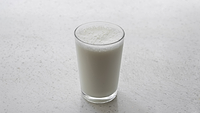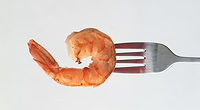Cane Juice Litigation Shows No Signs of Evaporating

Food and beverage manufacturers’ use of the term “evaporated cane juice” has faced scrutiny for a number of years. The phrase—which is used to describe a sweetener derived from sugar cane through a crystallization process—was the subject of draft guidance first issued by the U.S. Food and Drug Administration (FDA) in 2009. It was also the source of a number of lawsuits filed against food and beverage manufacturers who used the term on their labels, which plaintiffs claimed misled consumers regarding the presence of added sugar. A long-running lawsuit against yogurt-maker Chobani, for instance, garnered significant publicity.
Earlier this year, FDA brought the issue to a head by issuing final guidance that differed markedly from its earlier guidance. While the 2009 draft guidance had advised against the use of the phrase, suggesting instead that companies use a term like “dried cane syrup,” the 2016 guidance specifically stated that companies should not use the term “evaporated cane juice.” According to the agency, the use of “evaporated cane juice” on a food label “does not accurately describe the basic nature of the food and its characterizing properties (i.e., that the ingredients are sugars or syrups)” and is confusing because the “common use of the term ‘juice’” is a “liquid extracted from one or more fruits or vegetables….” While FDA’s guidance is nonbinding (and “do[es] not establish legally enforceable responsibilities”), the new guidance expressed the opinion that the use of the phrase was “false and misleading” and that, as a result, its use could constitute a violation of federal law. FDA recommended that, to avoid deceiving consumers, companies should simply use the word “sugar” or some variation of that word.
In the 2 years preceding the issuance of FDA’s new guidance, evaporated cane juice litigation had largely ground to a halt. Essentially all pending cases were stayed under the primary jurisdiction doctrine after FDA reopened the comment period for its draft guidance on the issue. But all that changed when FDA issued the new guidance. Cases that had been on hold began to move forward. In August, the district court in Swearingen v. Santa Cruz Natural, Inc., which was pending in the Northern District of California, lifted the stay that had been in place and ruled on defendant’s motion to dismiss. In its opinion, the court held, inter alia, that plaintiffs had adequately pled actual reliance and economic injury, and that while the “Court has some reservations as to whether a reasonable consumer would be misled as regarding added sugars” in certain of the soda brands at issue given the disclosure of over 30 grams of sugar on the label, the court would allow the case to proceed under the “reasonable consumer test,” at this stage in the litigation.
Much of the evaporated cane juice labeling litigation continues to be focused in state and federal courts in California. In addition to a number previously filed lawsuits that have again begun to move forward, multiple new putative class actions have been filed in various California courts. However, plaintiffs are also filing in other venues. In the last quarter of 2016, for example, a number of lawsuits were filed in state court in Missouri. Missouri is becoming increasingly well-known as a plaintiff-friendly jurisdiction following outsized verdicts in other products litigation. Regarding food litigation and labeling claims, a Missouri state court of appeals recently issued an opinion rejecting the ingredient list defense. Now, at least 16 cases have recently been filed in St. Louis on the topic of evaporated cane juice alone. Moreover, the complaints contain allegations specifically designed to keep the cases out of federal court. For instance, in an evaporated cane juice complaint filed in St. Louis against Hain Celestial, which quoted from the FDA guidance, plaintiffs made the allegation that the value of their claims was, at most, the refund price of the product (< $5), and that defendant’s sales in the state could not establish an amount in controversy to exceed the Class Action Fairness Act threshold for federal jurisdiction. Cases like these could be a part of a growing trend toward the filing of these types of cases in state courts across the country.
Going forward, the easiest way for companies to avoid the risk of evaporated cane juice litigation, of course, is to avoid using the term at all. Barring that option, companies already facing litigation or potential litigation have a number of potential defenses. They can seek to establish, as a number of defendants in these types of cases have asserted, that the term is not in fact misleading (despite what FDA has stated), or that consumers were not actually deceived or did not actually rely on the labeling at issue (a defense that may be bolstered in the future by the requirement that producers separately disclose added sugar on the nutritional facts panel). Defendants should also explore whether express or implied preemption might provide a defense to at least certain claims. Finally, defendants sued in state court must consider not only any unique defenses available under a particular state’s consumer protection laws, but also potential grounds for removal.
Sue Werstak, Esq., is vice-chair of Thompson Coburn’s Mass Tort Litigation Group, a partner in the firm’s Consumer Products Group and represents clients in the food and agriculture industries. She has represented product manufacturers facing high-exposure suits in courtrooms across the country.
Heather Counts, Esq., is also a partner in Thompson Coburn’s Consumer Products, Mass Tort Litigation, and Products Liability Groups. She acts as counsel for manufacturers facing products claims and commercial litigation in federal and state courts.
Paul Stoehr, Esq., is a member of Thompson Coburn’s Business Litigation, Product Liability and Appellate Groups, and has experience representing clients in complex commercial disputes across a variety of industries.
Looking for a reprint of this article?
From high-res PDFs to custom plaques, order your copy today!





